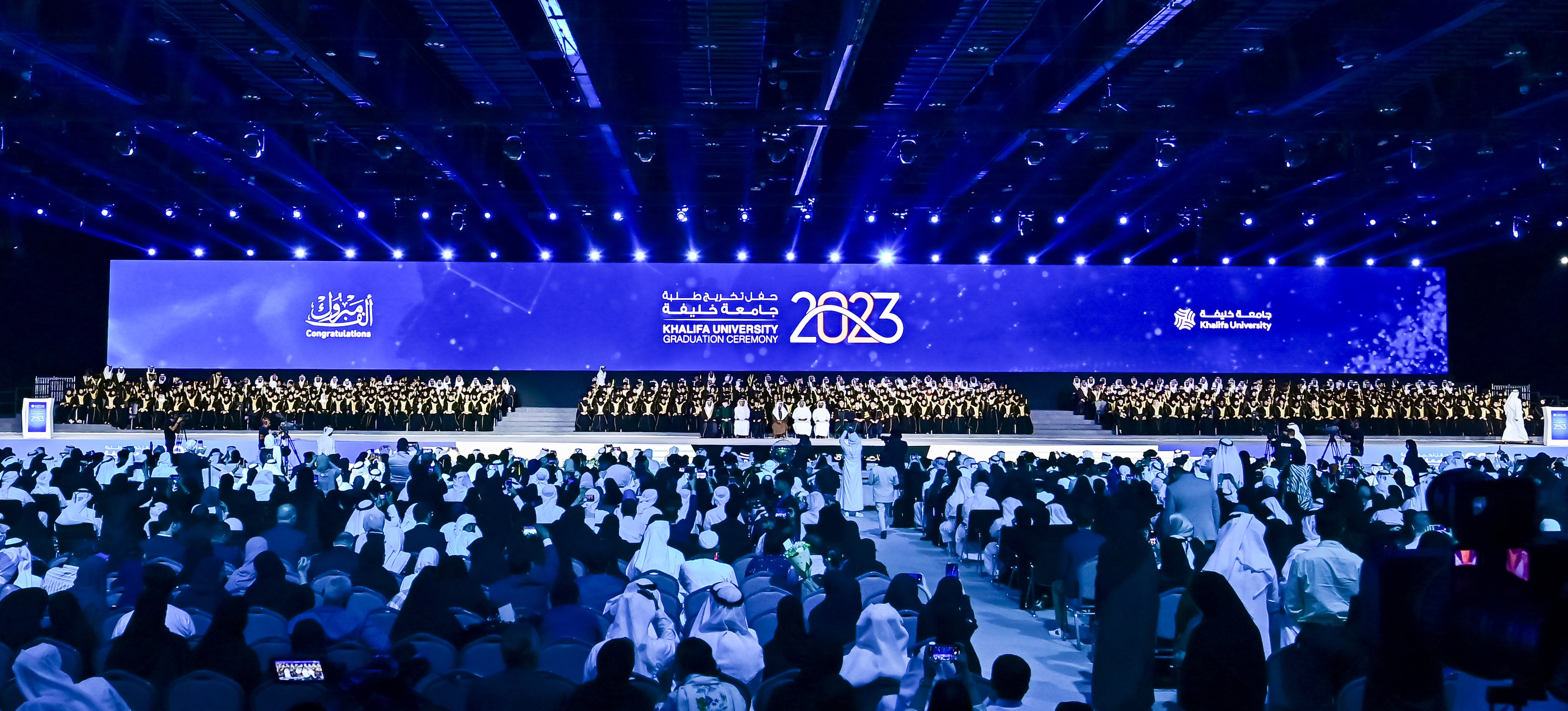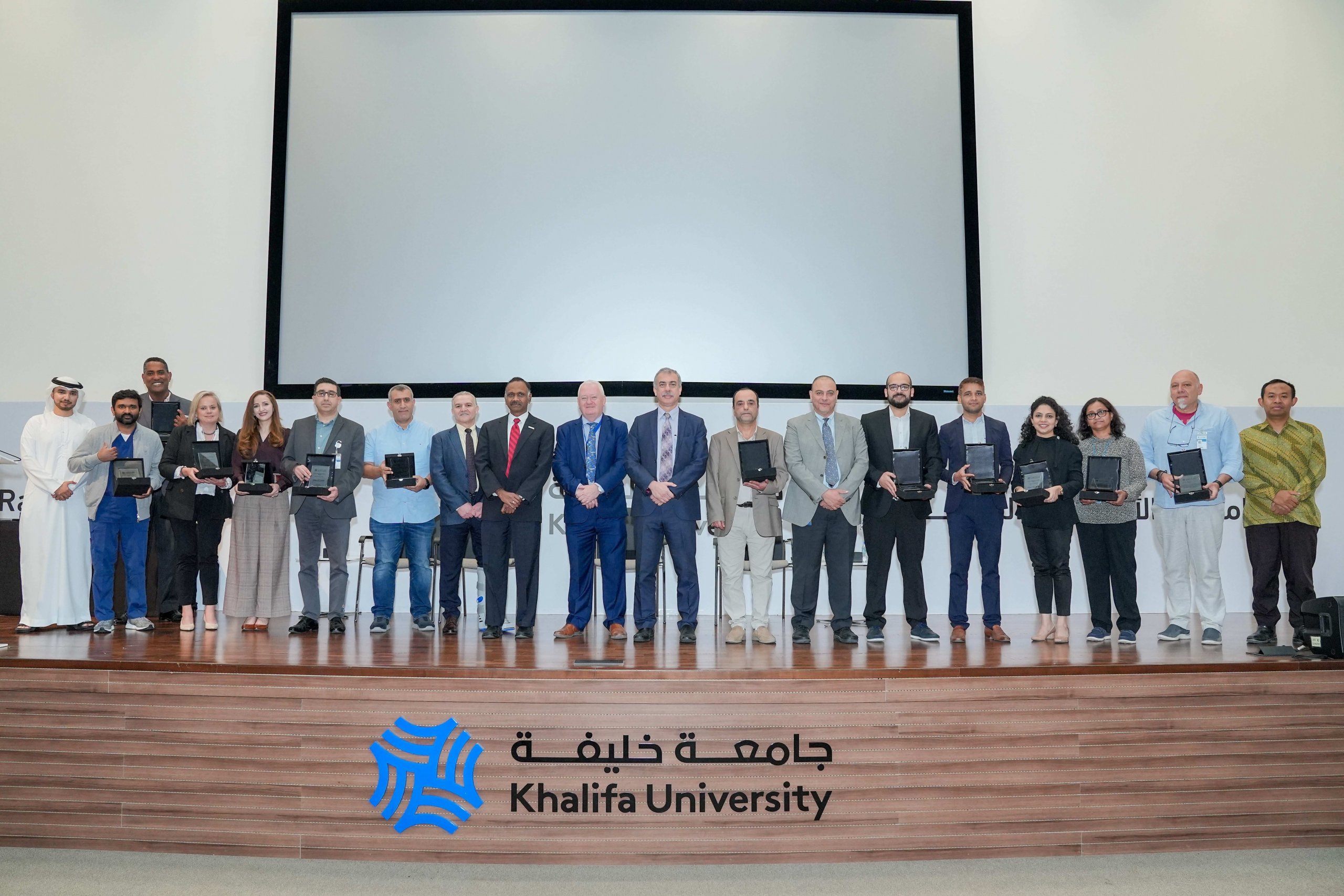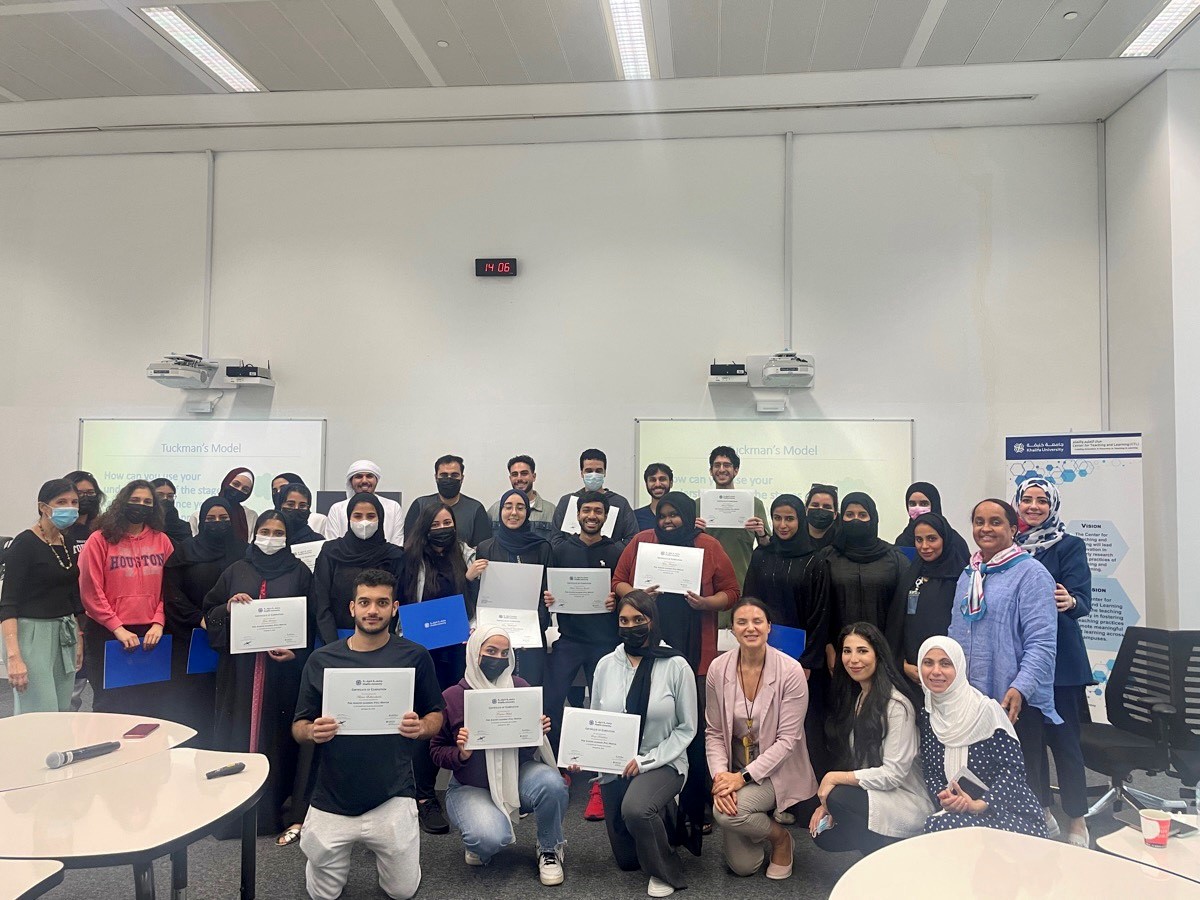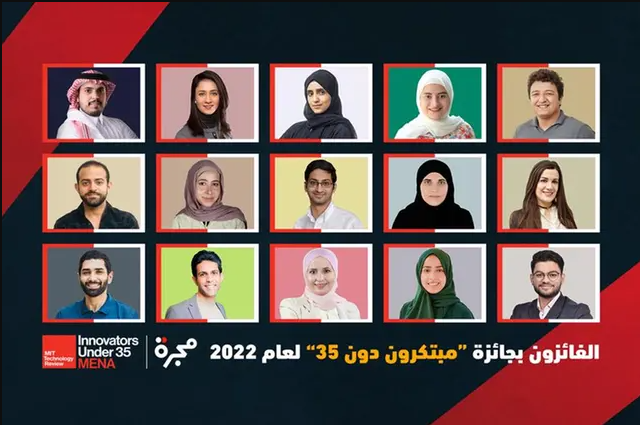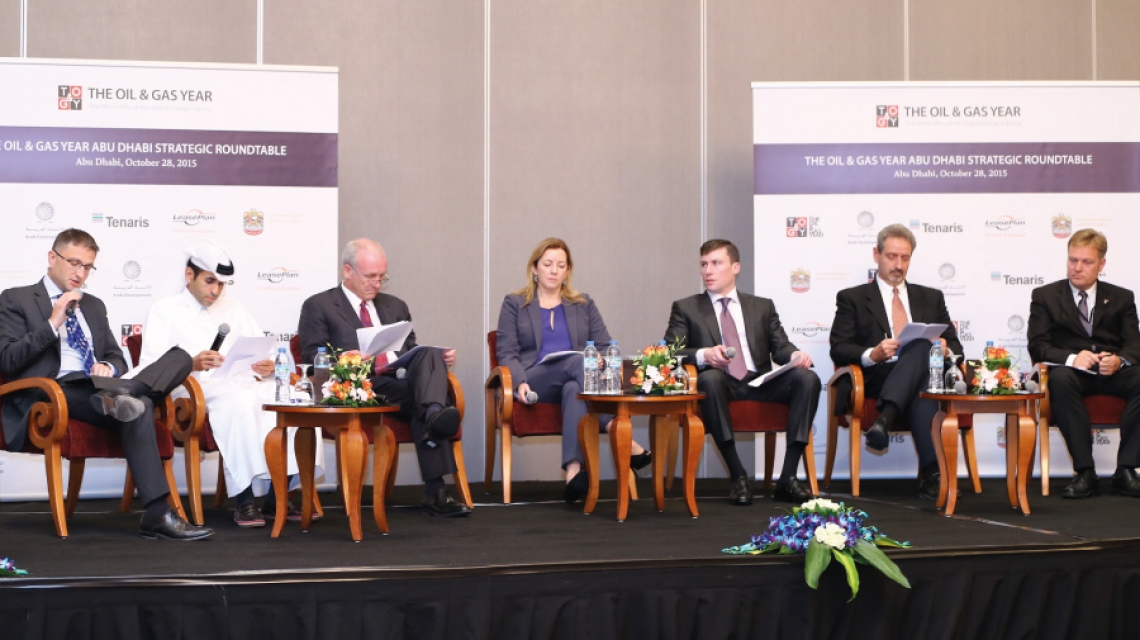
The key to a sustainable future for all – industry and environment alike – is industry-guided research and development (R&D), Masdar Institute Vice President for Research and Professor of Practice Dr. Steve Griffiths told attendees of the Oil and Gas Year Strategic Roundtable last week.
“Innovation happens through collaboration between private, public and academic organizations,” Dr. Griffiths said. “Public-private partnerships are effective tools for leveraging the resources and expertise of each sector for the development of technology-based innovations that make oil and gas-related operations more efficient and sustainable.”
Dr. Griffiths was speaking in a panel discussion at the influential roundtable event, which brought together 200 government officials and senior management executives, including the UAE Minister of Energy, H.E. Suhail bin Mohamed Faraj Fares Al Mazrouei, to discuss best practices on how to achieve sustainability in the UAE’s oil and gas industry.
This 6th iteration of the roundtable was sponsored by the Arab Development Company (ARDECO), LeasePlan and Tenaris. Panelists focused on how innovative R&D of cutting-edge oil and gas technologies can be leveraged to support the UAE’s oil and gas sector – which remains the mainstay of the UAE’s economy, accounting for 30% of the country’s gross domestic product (GDP), which was valued at US$1.47 trillion last year, and contributing over 60% of the government’s revenues – while also reducing the industry’s adverse environmental impact.
Dr. Griffiths spoke about the novel R&D taking place through industry-guided collaborations between the country’s research institutes and local and global enterprises, which are catalyzing breakthrough innovations that are enabling UAE’s oil and gas sector to optimize extraction and utilization of their oil and gas reserves.
Collaborations are a key element to Masdar Institute’s oil and gas R&D, which seeks to produce sustainable technologies across the oil and gas value chain, from extraction of the precious fossil fuels to their transportation and refinement into energy and high-value fuels and chemicals.
Masdar Institute currently collaborates with industry leaders like the Abu Dhabi National Oil Company (ADNOC), Takreer – ADNOC’s refining arm –, BP, Total and Maersk Oil Company, to support the development of sustainable technologies required to sustain and power the oil and gas industry and any economic sectors that are impacted by it.
Among Masdar Institute’s notable oil and gas R&D is its Digital Rock Physics (DRP) project, which involves the study of how oil moves through the micro- and nano-sized pores of the underground carbonate rocks in which it is trapped. The study aims to produce an extensive archive of rock images in microscopic detail and to digitally simulate and test the behavior of oil and gas in reservoirs with the ultimate goal to maximize oil recovery.
Another oil and gas innovation being developed at Masdar Institute is the development of enhanced sensors that use graphene to detect scale build-up in pipes, helping to reduce energy requirements needed to maintain vital piping systems needed to extract and transport oil.
Additionally, Masdar Institute’s advanced materials research is leading to the creation of composite materials to help oil flow through pipes more efficiently. Other studies that leverage the unique properties of advanced materials are being conducted to improve the performance of plastics and piping, providing the UAE’s industries with a competitive advantage.
These innovations are the direct result of targeted R&D, Dr. Griffiths explained. Research collaborations like these directly support the UAE’s knowledge-economy transformation by providing key UAE enterprises with innovative, viable and valuable solutions while providing students with real-world industrial problems, producing a pool of highly-skilled and trained personnel that all thriving innovation ecosystems require.
Public-private partnerships that leverage the UAE’s robust technology infrastructure, coupled with an innovation-enabling regulatory framework, will help position the UAE as a center of regionally-focused but globally-recognized knowledge and technology creation, explained Dr. Griffiths.
Dr. Griffiths also highlighted the future directions of energy technologies based on fundamental advances in materials science and information science. Particular applications that will be disruptive to the energy industry include carbon conversion to higher value products and autonomous vehicles.
Supporting development and commercialization of indigenous innovations directly supports the UAE’s national ambition to be an exporter of knowledge and technology, and Dr. Griffiths believes that industry-guided research is central to these efforts.
Erica Solomon
News and Features Writer
30 October 2015



